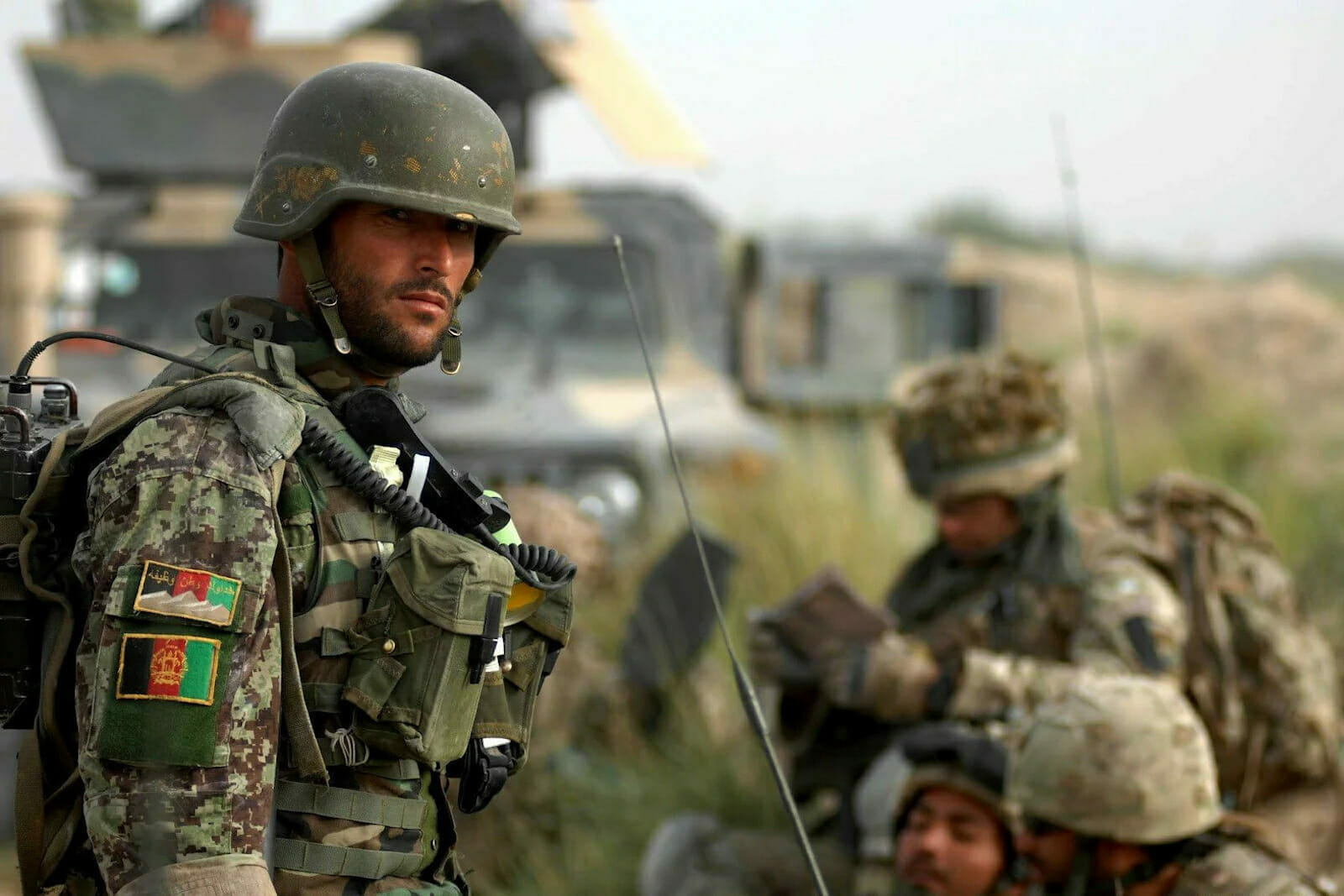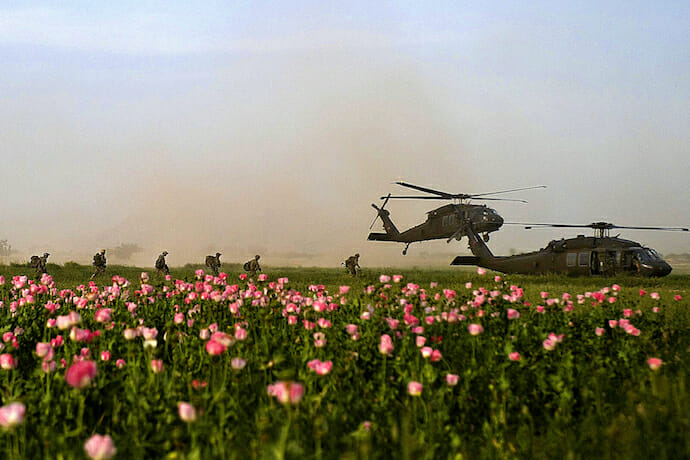
How will America Deal with Russia’s Interest in Afghanistan?
The Russian Federation offered itself as a guarantor of a peace deal between the United States and the Afghan Taliban if it “received such requests from parties to the negotiations,” according to Russian Foreign Ministry spokeswoman, Maria Zakharova.
Aside from trolling the Americans, the statement underscores that Russia has concerns in Afghanistan that will outlast the American public’s diminishing interest in the place.
The Taliban have said they want Russia and China (and others) as “international witnesses” at the final deal, for political support and likely as sources of aid money as U.S. and Western donations may dry up when U.S. and NATO forces leave. Russia and China will be less picky about how their aid money is spent so long as some of it comes back to Russia and China as contracts or goes into the pockets of compromised Afghan officials.
There is a lot of concern about the Taliban taking over the country, but the most likely scenario is less that the Taliban will take over the country, but that it will clash with other armed groups and be unable to “enlist the support of a cross-section of Afghanistan’s diverse population,” according to Amin Saikal of Australian National University.
Afghanistan is the home to many ethnic groups, and that diversity is great stuff in peacetime, but the looming conflict will be an opportunity for outside powers to support “local partners,” that is, warlords. Uzbekistan may feel obligated to support Afghan Vice President Abdul Rashid Dostum, the leader of the Uzbek community in Afghanistan. Iran will be looking out for the interests of the Shia Hazara who have been persecuted and excluded by the Taliban and the country’s Pashtun and Sunni governments.
If the warlord scenario comes to pass, and as the U.S. presence diminishes, it will find itself by necessity in closer contact with Russian officials and military personnel as it coordinates operations and the remaining aid operations. This will cause much harrumphing on Capitol Hill and in some policy circles because of the Russians.
How might the U.S. presence be structured?
Some options are:
A small force for the counter-terror mission, gathering intelligence for international counter-narcotics efforts, and advising select Afghan units, like the Afghan National Army Commando Corps. U.S. President Donald Trump says 8,600 troops will remain after 5,000 are withdrawn over five months. If that happens, expect to see even more contractors in the country.
Containment. The Taliban can ask the Russians how this works, but the U.S. could help secure Afghanistan’s perimeter via specific security arrangements with China, Pakistan, and Iran. This will require an increase in military-to-military and law enforcement cooperation, both for security sector reform and border security and to stanch the flow of drugs which will likely continue when the Taliban have a formal role in the political process, especially given the numerous transport links between Afghanistan and its northern neighbors.

An “over-the-horizon” counterterrorism strategy as proposed by Robert Pape of the University of Chicago. Under this option, America’s military commitment is shifted outside Afghanistan and post-agreement cooperation with the Taliban would “rely on cooperation with local partners and selective interventions of airpower, U.S. special operations forces, and intelligence, economic, and political support from regional bases outside Afghanistan for the narrow purpose of counterterrorism.”
The “over-the-horizon” strategy would require more intensive diplomacy than the other options as most countries in the region would be chary of being the launch point for U.S. missions in Afghanistan and would prefer increased intelligence sharing, training, and equipment transfers. Uzbekistan, for one, prohibits foreign bases in its territory and will not join any military alliances.
In short, the U.S. counterterrorism and counter-narcotic options will be bound by the diplomatically achievable. The Central Asian countries have improving relations with the faraway West and deep relations with next-door Russia so they will be able to bargain if they decide to allow a role for foreign forces above and beyond training and intelligence sharing. Russia will enlist officials at the minister level and Russian President Vladimir Putin will put in an appearance to seal the deal. So the West will have to commit the time of senior officials to shape the results it wants; a flying visit by some Assistant Secretary won’t cut it.
If at first Iran doesn’t want to deal with the U.S. that’s OK, as the Afghan drugs will follow the path of least resistance which will probably be through Iran, described by the UN Office on Drugs and Crime (UNODC) as a “a major transit country for illicit drugs.” Given Tehran’s failing fight against narcotics and drug addiction, it may be a matter of time before the societal costs mount to the point where Iran decides cooperation is a better idea. In the meantime, the U.S. can pick up more sanctions targets from the many Iranian officials in the narcotics trade.
Russia has criticized what it sees as an ineffective U.S. effort to stop drug flows from Afghanistan and accused NATO forces of turning a blind eye to drug trafficking. One Russian official noted that “illegal drug trafficking caused by the U.S. war in Afghanistan has killed more Russians than the Soviet Union lost in 1979-88 war,” an argument that will mobilize patriotic Russian voters and that can be pitched to China and Pakistan as proof the U.S. and its allies are heedless of the spillover effects from their failed campaign in Afghanistan.
The U.S. certainly didn’t help its case by sanctioning Victor Ivanov, the head of Russia’s Federal Drug Control Service, for Russia’s annexation of Crimea. You can be sure Vladimir Putin will keep Mr. Ivanov in his job just to make his U.S. counterparts endure the legal process to get approval to meet sanctioned foreign officials.
In 2000, the Taliban enforced a ban on poppy production, but recently the UNODC estimates the Taliban’s annual income is $400 million, “half of which is likely to be derived from the illicit narcotics economy” and observed that “high and increasing levels of opium cultivation have shown a closer correlation with rising terrorist attacks.” To keep the Taliban honest, it may be time to revive the Drug Enforcement Administration’s Operation Reciprocity, a plan to arrest Afghan drug kingpins and to stanch the flow of illicit narcotics proceeds to the Taliban insurgency and corrupt officials in the Kabul government.
Bolstering the central government in Kabul has been a bust, so the U.S. should consider stabilizing the country from the perimeter. The U.S. won’t get the degree of control it wants and the results may be uneven but the neighboring countries are highly motivated and, with support from the U.S., Russia, and the European Union, they may succeed.
For example, Uzbekistan has advocated for Afghanistan’s place as part of Central Asia. The government hosted a Taliban delegation in 2018 and recently reiterated its willingness to host intra-Afghan peace talks. The country has transport links to Afghanistan at the Termez border crossing (road, rail, and barge,) and the nearby Navoi airfield. It has received investment from China as part of the Belt and Road Initiative (BRI) and will be a key link in the East-West corridor between China and Europe. Its transport infrastructure which connects it to Russia makes it an attractive target for narcotics traffickers.
Uzbekistan improved Afghanistan’s transport infrastructure by building a link between Hairatan on the Uzbek-Afghan border to Mazar-e Sharif, a major city in northern Afghanistan. Tashkent then pledged $500 million towards the cost of extending the line to Herat in northwest Afghanistan, which is close to Iran and Turkmenistan, and where it will connect to the Iranian rail network.
The Tashkent government defeated its home-grown terrorist group, the Islamic Movement of Uzbekistan, by the early 2000s and since then the country has resisted extremism. Tashkent will be loath to see its Afghanistan development effort wasted, its transport system subverted by the narcos, and potential for cross-border terrorism so will likely be interested in working within a cooperative security environment.
American officials will have to get used to Russians asking ‘So what happened in Afghanistan?’ at every opportunity as the Russians see it as for payback for U.S. support of the mujahedeen. And Moscow will ensure a sanctioned official is a senior member of every delegation just to make the Americans’ meeting preparations extra difficult.
Russia will attempt to take advantage of the structure of the American policy process, which is Americans work vertically (while the Russians work horizontally).
Americans “silo” every issue, such as Afghanistan or Syria, as interested executive branch functionaries, Capitol Hill staff, journalists, think tanks, ethnic interest groups, campaign fundraisers, and politicians coalesce around it. A politician like Vladimir Putin thinks horizontally and will offer a concession on, say, Syria, in exchange for an American hands-off in Venezuela or Donbas. The losing silo will erupt that America is trading away the legitimate democratic aspirations of the unspellable or unpronounceables in a dirty deal. Someone will use the M-word – Munich – and it will be all downhill from there.
You are conservative about what you know best, so policy practitioners will fight to protect their silo, especially if it might be traded away “because of a quarrel in a far-away country between people of whom we know nothing.” Trump is a threat to the silos as in his mind everything is related to everything else all the time and he doesn’t respect the silos – or their future earning potential.
In Washington, nothing guarantees job security like an insoluble, intractable problem. Exhibit A: the Middle East peace process.
Putin probably knows he won’t get far, but he’s game to give it a try as he can spin America’s refusal to deal as another example of its inability to consider other countries legitimate interests.
And it won’t be smooth sailing for the Taliban.
When the Taliban fail to subdue the entire country, they may face even more outside powers supporting more local partners. All that work to get rid of the Americans may find them facing strengthened (and armed) local competitors with grudges and long memories.
So, if the Americans and the Taliban do a deal, that will kick off intensified diplomatic engagement with the neighboring states to structure America’s stay-behind presence, and to compete with Moscow’s full-court press in Central Asia, what it considers part of its “sphere of privileged interest.” And America will have to up its game. “You should be like us!” won’t do as the recent spectacle of frayed institutions, politically motivated prosecutors, and eager policemen muttering about a “higher loyalty” will remind Central Asians of the crowd they got rid of in 1991.
America will have to refine its offering and balance its normative impulses with the practicalities of engagement in Central Asia, “far-away countries” it will rely on for a tolerable ending to the Afghanistan adventure.

